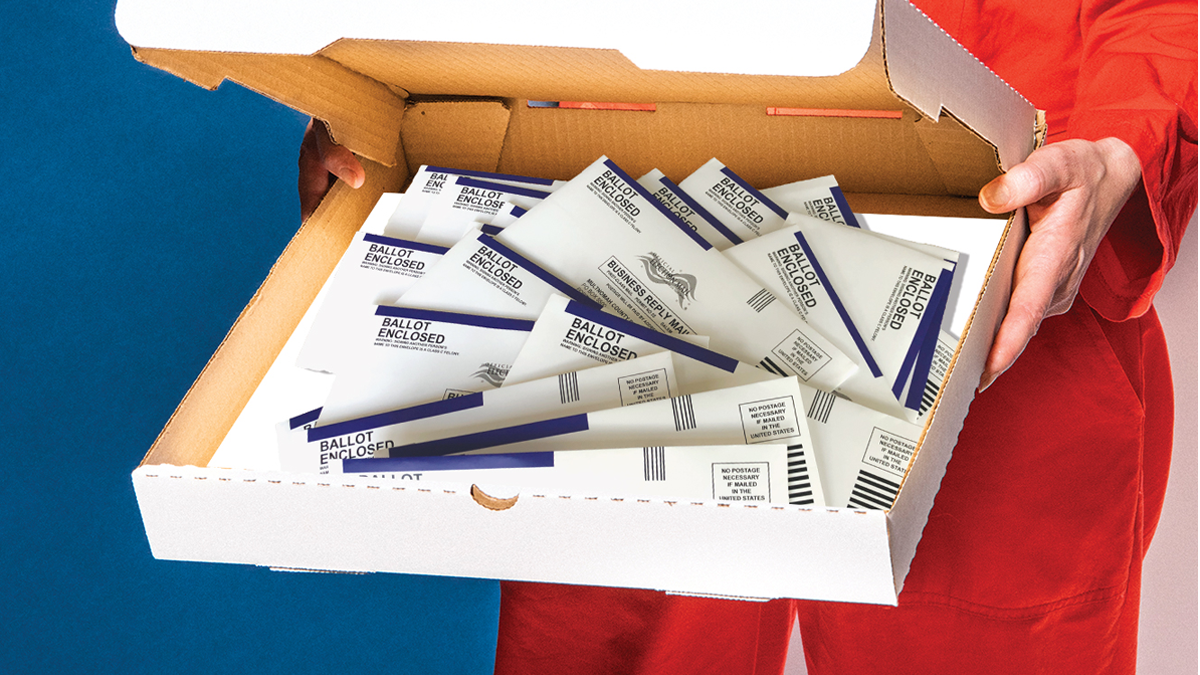Endorsement: Oregon Secretary of State
Endorsements: Portland City Hall
Endorsements: Metro and Multnomah County
This weekend, ballots arrive in Portland mailboxes. It may be the only ritual in this city that hasn't changed.
When the 2020 election cycle began, COVID-19 was a distant threat. In two months, the virus has disrupted nearly every aspect of daily life, and brought Portland's boom era to a bleak end.
State and local officials have made hard choices that prevented the illness and death of our friends and families, but those decisions also plunged the state into economic and social limbo. Businesses are closed—some never to reopen. Hundreds of thousands of people have lost their jobs. We can no longer gather, or even greet each other, without 6 feet of distance and a mask.
The election itself has been fundamentally altered. Debates? Held on Zoom, with the candidates crowded into squares on a screen like game show contestants. Door knocking? A relic of the past, replaced by text messages and cold calls. Fundraising dinners? Try "virtual cocktail hours" with a laptop instead.
Yet there is your ballot, on your kitchen counter, like always. It feels miraculous.
In fact, it was the result of sound policymaking, dating back to Secretary of State Phil Keisling and continuing through Gov. Kate Brown, that sought to ease and simplify voting by mail. While other states force their citizens to wait in long lines, risking illness, Oregon built an elegant, equitable system that works even in a global pandemic.
We've been thinking a lot about the lessons of those vote-by-mail envelopes as we prepare our endorsements for the May 19 election.
For the past three weeks, we've been interviewing candidates. Like everyone, we've had to improvise.
Instead of bringing candidates to our offices for joint interviews, we've had them join us from their home offices and dens via Google Meet. We still interviewed them jointly, so they could confront each other as well as our editorial board. (The result was some spirited video, which you can find with each endorsement.)
We also scaled back the races in which we endorsed and couldn't interview all 54 Portland City Council candidates or any judicial candidates. Our criteria this year: Voter registration in a district must allow a candidate who wins in the primary a reasonable chance to win in November's general election. (Portland being a deep blue city, that means you'll find more Democratic primary endorsements than GOP picks.) And the race must be seriously contested: Two candidates must be listed in the Voters' Pamphlet and still be actively campaigning. Among other things, that means we won't be making a presidential endorsement until November.
It's been an extraordinary process. We've sat in our living rooms, connected by Wi-Fi to people across the city, discussing how we can build a better society in the wake of a terrifying virus. In these remarkable circumstances, we've taken a few lessons from Oregon's vote-by-mail system.
The first is the importance of preparedness.
Oregon created a resilient voting system far before it would be this acutely needed. Officials did that by working together—often with people they disagreed with—and by thinking carefully about how to make a system function. As the COVID crisis continues, Portland will need elected officials who can make hard decisions, especially around budgets, and see ahead to the next problem. We placed a premium on experience and willingness to collaborate. It's easy to beat up on "professional politicians," but would you hire a doctor who hadn't gone to medical school or served an internship or residency?
Second, we realized that a crisis is also a test of our values.
Vote by mail placed a premium on enfranchising all voters—and now that everyone has trouble leaving the house, that decision looks pretty damn good. The right priorities don't just endure a disaster. They become a source of strength. We tried to evaluate which candidates and proposals would hold up best under duress—because we don't expect life in Portland to be easy anytime soon.
All of the candidates seeking office this spring launched their bids at a time when revenues were flush, nearly everyone had a job, and politicians were eager to spend record revenues. In the midst of their campaigns, the world changed—and now their first duty will be to sensibly cut budgets, find ways to support small businesses, and put Oregonians back to work. Many of them don't seem to understand how the world has changed. We favored those who do.
In the following pages, we'll make a case for how you should cast your vote in this strange time. We expect you'll sometimes disagree with us. We also expect you to vote.
After all, you can't leave the house. So the future of Portland is being delivered to you. Make it a good one.

